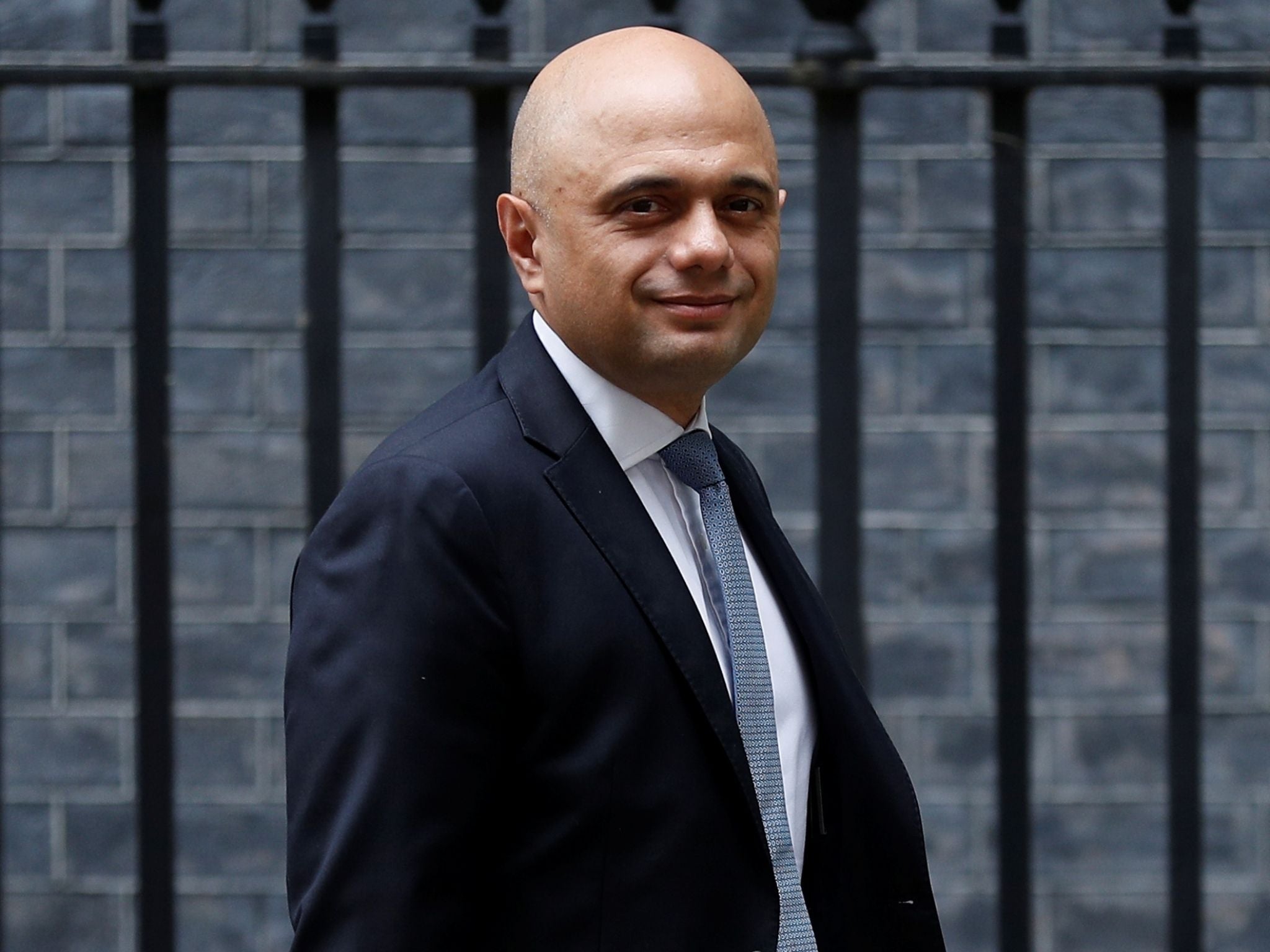Poor communication over Covid-19 is a hard habit for the government to break – as Sajid Javid’s tweet shows
Editorial: Boris Johnson and his Downing Street team need to get a grip: the mixed messages and misspeaking have got to stop

Another day, another display of poor communications from the government on coronavirus. After criticism from the Covid-19 Bereaved Families for Justice group, Sajid Javid deleted a tweet in which he urged people not to “cower from” the virus.
The health secretary apologised, admitting it was a “poor choice” of word, but his original remark was revealing. It betrayed the government’s tendency to forget about the estimated four million clinically extremely vulnerable people and the frontline workers who most certainly do not “cower”, but put their own health at risk by providing vital services.
The words not only showed Mr Javid’s libertarian instincts – he is an avowed admirer of the American philosopher Ayn Rand, who advocated individualism – but also his desire to parade them to lockdown sceptic Conservative MPs who, while not commanding a majority among the party’s backbenchers, certainly make the most noise.
Boris Johnson also likes to pander to these MPs, and to the Tories’ newspaper cheerleaders. He might have been joking when, according to his former adviser Dominic Cummings, he said he still regarded his former employer, the anti-lockdown Daily Telegraph, as his “real boss”, but his reluctance to impose restrictions and desire to lift them prematurely suggest there is more than a grain of truth in it.
The appointment of Mr Javid also shows whose side the prime minister is on in the debate between the hawks and doves. Determined to hit the ground running, the incoming health secretary made media statements more bullish about lifting restrictions than the words issued by his civil servants and declared there would be “no going back”. This was unwise. Since then, cases have risen and even Mr Johnson has stopped saying the ending of curbs in England is “irreversible”.
Mr Javid, now in his sixth cabinet post, should have learnt to choose his words more carefully. He would have wanted to make clear the Department of Health and Social Care is under different management after the resignation of Matt Hancock, who usually allied with the medical and scientific advisers urging a cautious approach. Mr Hancock was right to quit for breaching social distancing rules but it is regrettable his departure has tilted the balance of Mr Johnson’s inner circle on Covid in the libertarians’ favour.
The government is right to say we must learn to live with the virus, which sadly is going to be with us for some time yet. But it cannot afford the luxury of using loose language. Communications are a precious tool which must be used to full advantage in a pandemic. Yet the Johnson government has frequently stumbled since its initial “stay home, protect the NHS, save lives” mantra inevitably became more qualified. “Stay alert” was a poor successor.
In their desire not to lose public support, ministers have allowed the rules to become dangerously out of synch with the communications about them. The dates in Mr Johnson’s roadmap for ending restrictions became dates when changes would be made, not might be. He lacked the courage to delay “freedom day” a week ago, but in doing so issued a contradictory message of caution. In one breath, ministers say it is no longer compulsory to wear masks, but then urge us to do so in crowded places such as public transport. It is obvious which of those two messages is the stronger and more likely to be followed.
The constantly changing regime for international travel has left millions in confusion and uncertainty; it would have been better to have followed the Welsh government’s policy of advising people to have a staycation this summer.
Mr Johnson and his Downing Street team need to get a grip: the mixed messages and misspeaking have got to stop.



Join our commenting forum
Join thought-provoking conversations, follow other Independent readers and see their replies
Comments